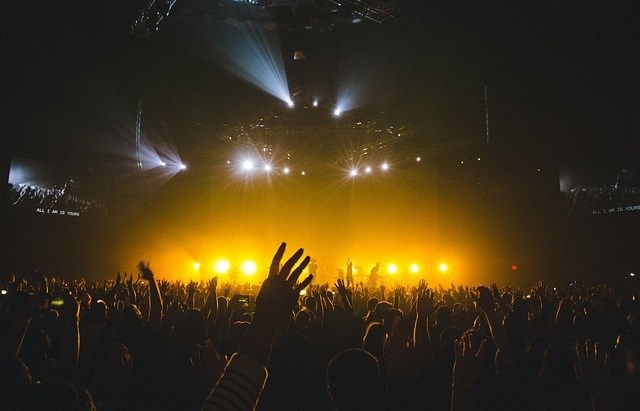
Subscribe & Follow
#AfricaMonth
Jobs
- Graphic Designer/E-Commerce retail design Johannesburg
In the news
5 technologies transforming the online ticketing business

Perhaps the biggest impact of this phenomenon can be felt in the online retail industry, especially with the drive towards frictionless experiences. And as a sub-industry of online retail, ticketing and event management are being shaped to engage consumers in unprecedented ways.
With the emergence of artificial intelligence, big data, and machine learning coupled with the release of 5G (the fifth generation of mobile networks providing for data transfer speeds of up to 1,000 times faster than 4G), a host of new technologies that were no more than pipe dreams a few years ago suddenly become a reality.
Looking at current trends, we can predict what is set to change the way the ticketing industry engages with its target market over the next 5 to 10 years. This is what to look out for:
1. Artificial intelligence (AI)
An intelligent system (such as Siri, Alexa, and Cortana) can analyse massive amounts of data (also called ‘big data’) within a fraction of the time it would take a human to perform similar activities. This technology would free up time for the event planner to gear their business for optimal growth based on real-time analysis of data trends in order to predict buyer behaviour.
Through machine learning models, systems will learn what your tastes and preferences are by aggregating and analysing your behaviour (based on online interest and activity) as well as the behaviour of the social circles you run in. For ticketing companies, it brings a new level of marketing efficiency by allowing the event planner to hone in on groups based on shared interests.
Buyer behaviour has shown that people who attend events are more likely to do so if they have someone to go with them. This technology has been developing in the background for quite some time, simplifying our decision-making processes by eliminating irrelevant content.
Where we previously had to answer questions on a website to navigate through thousands of options, machine learning eliminates anything deemed irrelevant, allowing us to choose from a smaller pool of options. For instance, if you are a Netflix subscriber, then you are aware that the system analyses your past preferences to create a list of suggested content closely related to your interests.
AI could also make real-time dynamic pricing a reality. Dynamic pricing occurs when the price of a good or service changes based on changes in the market. It is not a new concept. In fact, it is successfully used by many online retailers such as Uber and Airbnb who update their prices based on variables that reflect supply and demand.
One example would be the weather. If, hours before an outdoor event it looks like there’s a possibility for strong winds, the system would consult weather apps and scale the ticket price accordingly to ensure that any remaining seats are filled.
2. The Internet of Things
The Internet of Things is a blanket term for the interconnectivity of all objects with the capacity to be implanted with a computer chip for the purpose of communicating data between multiple points, also known as NFC (Near Field Communications).
NFC will be present in every smartphone in the future allowing for total automation. Entry to an event could become as simple as touching your phone to the access gate and looking into a facial recognition scanner. As soon as a person steps through the gate, as per Ts&Cs stipulated in the digital contract, the presence of the ticket holder becomes trackable. This would be done for safety (in case of an emergency) or security (by acting as a deterrent for delinquent behaviour).
Another cool feature of NFC is that it allows for any kind of data transference which could be used to optimise our experience of an event. Spending time fighting for drinks at a concert while your friends are enjoying themselves is currently a frustrating reality.
In the next decade, it would be possible to set a refill level for your beverage, eliminating the need to fight for the bartender’s attention at an event where everybody seems to get thirsty at the same time. Setting the level could be as simple as touching a digital measurement bar on the side of the glass. Once the refill level is reached, it could be replaced by a new drink on command by sending a signal out to the drinks station closest to you.
3. Robotics
The International Federation for Robotics estimates that service robots are going to play a major role at events and exhibitions. Robots could, for instance, take over the mundane job of attending a stand at an exhibition and providing in-depth knowledge about a product or service.
Some very interesting work is being conducted by the Honda Corporation in their robotics department. Their famous robot, Asimo, is at the forefront of the latest developments as it can read facial expressions and conduct conversations. Another company that does groundbreaking work in the field of mobility, Boston Dynamics, has created robots that can run up stairs, jump and even do a back flip.
4. Augmented reality
Brought to the attention of millions around the globe, augmented reality was catapulted into the limelight through the game Pokemon Go. Many of us chased creatures around our neighborhoods, and even indoors at work, which only existed on the screens of our phones but projected digitally onto the physical world. It proves the engagement value of AR and opens the door to more personal experiences leading us closer to the ideal of a market of one.
Picture this: you’re strolling through the mall and you hear a song playing that you like. Your AR glasses pick up the sound and display the artist and the song title in your field of vision. The artist might even suggest buying a ticket for the next event in your city and guide you through the purchase.
Even though it seems fantastical, we are closer to making it a reality than one might think. It would drastically change the way the online ticketing industry does business by making the experience more personal and engaging.
5. Virtual reality
Virtual reality is not a new concept. It was brought to the forefront of pop culture in the 90s by movies such as ‘Lawnmower Man’ and ‘Brainscan’. As a technology, it had a short unsuccessful run before disappearing from the scene before the advent of the new millennium. But it did spark an interest in what could one day be possible. With the arrival of 5G wireless networks, the technology promises to be everything we dreamed it would be.
At the moment we’re running VR on 4G networks. That’s like trying to run a Ferrari with a Golf engine. Although the technology is already impressive, imagine what it would mean when the Ferrari engine arrives.
For event managers, it would mean that tickets could be sold to customers long after the location is sold out. The ticket-holder could attend the event live by simply putting on their VR headset and getting into a haptic suit (haptic technology simulates sensory responses to environmental factors, for instance, touching something in the virtual world would feel like you’re actually touching it). The income possibilities are astronomical.
We don’t need to gaze into a crystal ball to see that the future of business is undergoing significant changes. We are currently operating in a world where every business offers its own products and services through their own platform in isolation from other platforms.
As businesses evolve to accommodate the need for greater simplicity and integration, we will see a distributed commerce model becoming the norm. By following this model it would, for example, be possible to buy concert tickets in the Uber app while on your trip as you pass an arena where an upcoming event correlates with your individual music preferences.
Future trends for the ticketing and event industry promise exciting changes and an unprecedented opportunity for customer engagement and personalised marketing. The trick is keeping up with these new developments in order to make the most of them.

About James Tagg
James Tagg is co-founder and co-director of Quicket where he initially worked on the development of the platform and later shifted focus into operations as MD. With a background in web development, he is drawn towards automation and extracting efficiency from day to day operations in and out of the work environment.Related
IFAS Unrecorded Voices explorative AI Programme's to redefine storytelling of marginalised histories 28 Oct 2024 Addressing the gender gap in South Africa's music industry 2 Sep 2024 Ticketmaster expands African reach with acquisition of Quicket 25 Jul 2024 Education in the spotlight at Singularity South Africa Summit 2024 5 Jul 2024 Richfield Newtown hosts first Robotics and Environmental Sustainability Youth Month Commemoration Event 2 Jul 2024 Trialogue Business in Society Conference 2024: ABC to CEO – supporting the learning journey 25 Jun 2024
















